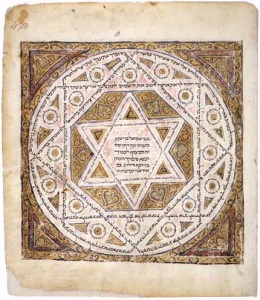If you are preaching or listening to a sermon this Sunday from the All Saints Day lectionary, you may encounter 1 John 3:1-7. It’s a strange paragraph, pulling us back and forth between the assurance that we are children of God to the warning not to be deceived about lawlessness. My article today addresses the context of 1 John as a whole rather than a verse-by-verse analysis, but I thought you all might find it helpful.
My thinking about the whole New Testament has been greatly influenced by Amy Jill Levine’s The Misunderstood Jew and, of course, Rabbi Edwin Friedman’s Generation to Generation. Though neither of them address this particular passage, they address the larger issues. Levine reminds us of the Jewish origin of the New Testament and Friedman writes of emotional reactivity and family cut-off as if he were addressing the situation of first century members of the Christian community as their relationship to the synagogue disintegrated.
When we remember that the dividing line between Christian and Jew did not exist in the first century the way it does now as a religious and ethnic designation, it influences the way we read all of the New Testament. In the first century, Christians were a subset of Jews. Even those Gentiles who joined the first century church saw themselves as becoming Jews. The whole circumcision controversy would not have arisen if the church did not think of itself as a Jewish institution. It wasn’t until the second century (decades after the writing of 1 John) that Christians embraced an identity separate from Judaism.
The community of John (I’m convinced that the Johannine pastoral letters and the Gospel grew out of the same community) thought of themselves as Jews who believed Jesus was the Jewish messiah. The expression John uses in the gospels that is translated “the Jews” refers to some group of Jewish leaders, not the whole ethnic group or all the members of the synagogue. It’s probably more complicated than that, but the main thing to remember is that Jesus and all his disciples and almost everyone mentioned in the Gospel according to John were Jews except for the Samaritan woman at the well and her friends in chapter 4. So, whoever it is John refers to when he uses that Greek expression “hoi judaioi,” (translated “the Jews” in the NRSV) it’s clear that he uses it in a very different context than our own. We use it to distinguish between Jew and Gentile. He uses it to distinguish between one group of Jewish people and another.
The next thing to remember is how emotionally devastating it was for them to be cut off by their synagogue and many family members. (Emotional cut-off is the essence of the word translated “hate.”) It was so devastating that many members of the Christian community left to return to their families and the synagogue, renouncing their claim that Jesus was raised from the dead because they were unable to withstand the emotional pressure of the cut-off. (Here’s a bit of polemic John uses against them in 1 John 2:18, “many antichrists have come. From this we know that it is the last hour. They went out from us, but they did not belong to us; for if they had belonged to us, they would have remained with us.”)
The claim that Jesus is the Messiah, and that his resurrection is the evidence, is the central claim of the Christian community and the claim that the leaders of the synagogue would not allow people to teach in the synagogue. It was, they said, a lie, and those who proclaimed it were liars. John joins in the name-calling. He turns this claim around with his polemic against “liars” who say they have not sinned and “liars” who say they love God but hate (cut off) a member of their own family or community. While we ordinarily read his proclamation that “God is love” (4:8) as a gentle description of our Creator, it is, in context, part of a screed against those whom John feels have betrayed him and his community by cutting them off or leaving to return to the synagogue.
Another issue the letter addresses is the accusation from some synagogue leaders that Christians were libertines. The fine line John walks between those who say they have not sinned, whom he calls “liars,” and those who abide in Jesus and therefore do not sin (3:6) makes sense only as part of that larger controversy between Christian Jews and synagogue leaders over the definition of sin. To the synagogue leaders, sin was breaking the commandments, but to John it was breaking this one commandment with two parts, “that we should believe in the name of his Son Jesus Christ and love one another just as he has commanded us.” (3:23)
The letter of 1 John, then, sends encouragement to a community of disciples of Jesus who had been cut off from (hated by) their families and their synagogue. John tells them that they are the truly faithful ones, that those who hate them (cut them off) are the liars and the sinners, and that the only way to stem the hemorrhaging of members is by loving one another as brothers and sisters.
Here’s my own reflection on this. The Johannine correspondence records for us John’s struggle to make theological sense out of the rejection of Jesus and his resurrection by the leaders of the synagogue and the tearing apart of family and community relationships. His polemical tone, using labels such as “liars” and “antichrists” indicates that the emotional reactivity had reached such intensity that those Jews on opposite sides of the resurrection claim could no longer hear each other. This emotionally charged letter records a sad failure of the church and synagogue to maintain their relationship in the face of disagreement. Certainly, the synagogue had withstood disagreements before, but this one led to the tearing apart of families and communities, and that’s hard to make sense of in the context of a loving God who calls us to love one another. Often, John presents his explanation in terms that fan the flames of division: God loves us because we love Jesus, but those who don’t love Jesus are liars who only say they love God, but they really hate God because they hate us, their brothers and sisters. While John’s rhetoric soars in places, he is at his worst when he claims the victim badge for himself and his community.
The question for us I think is this: To what extent has this emotional process of cut-off, victim-thinking, and name-calling of our adversaries repeated itself within the church? To what extent was it replicated in the Reformation? What would happen if we refused to engage in the cut-off, victim-thinking, and name-calling? What if we could embrace John’s soaring rhetoric on love without using it as a weapon against our adversaries? What if we never tired of reaching across theological, denominational, and ethnic boundaries in love? What would it look like to reach across to our Jewish brothers and sisters? Our Muslim brothers and sisters? Our Roman Catholic and Orthodox and Protestant fellow Christians? What if we simply rejected the divisions that evolved from the emotional process of the first century Christians’ failure to negotiate a peaceful coexistence with, or amicable divorce from, the synagogue?
On a more positive note, the Johannine community clearly survived because they took up John’s challenge to love one another as brothers and sisters. They provided one another with the love and strength it takes to withstand the rejection of their own families. What would it look like for us to provide one another with such love to withstand every rejection of the world outside (or other churches) while still reaching beyond our boundaries to those outside our own community?
If you would like to join this community of readers and receive my sort of weekly free newsletter and a free booklet on reading the Bible in context, click here. I promise I won’t spam you or share your email address with anyone.


